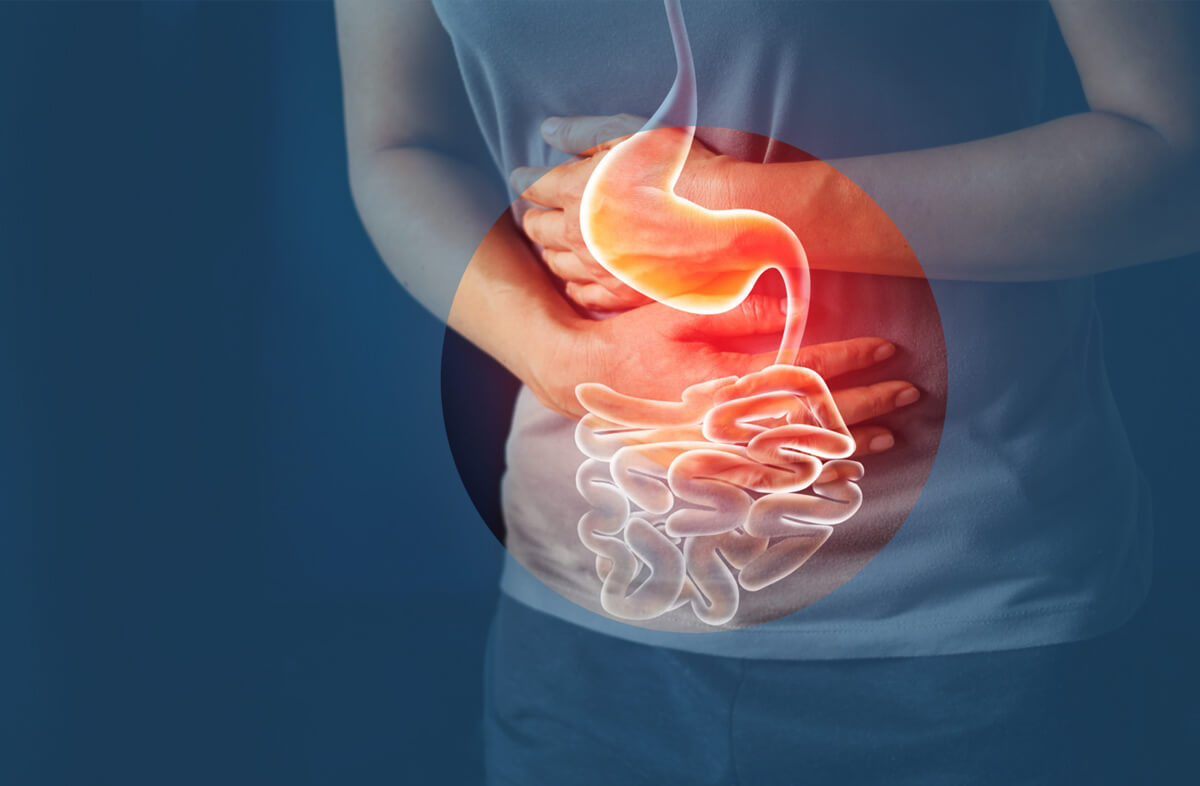The extensive surface area of our digestive system enables us to extract all of the essential nutrients from our diet. The intestinal tract, with its extensive blood supply, has a remarkable ability to renew the epithelial cell lining every 4-5 days [1]. This rapid turnover of cells makes our digestive system particularly susceptible to injury due to the relatively high concentration of reactive oxygen species (ROS) which are produced by our normal metabolism. Beyond this, toxins in the food we eat can cause further injury. Nitrosamines from processed meat and other heavy metals such as mercury are just a few examples of toxins we may ingest [2].
Our digestive system has evolved a complex biochemistry to counter these adverse conditions and glutathione (GSH) is of major importance in this defense mechanism. The mucosal lining of the intestinal tract is rich in glutathione (GSH) and it has been suggested that it plays a vital role in gut barrier function. Inflammation and the associated oxidative damage induced by acute bacterial or viral infections may also be prevented [9]. However, as we age, or with the progression of chronic disease, glutathione (GSH) levels may be less than optimal for maintaining good health.
Many gastrointestinal (GI) diseases have been associated with glutathione (GSH) deficiency. These include inflammatory bowel disease [3, 4], ulcerative colitis [5] Crohn’s disease [6, 7] and Celiac disease [8]. An exaggerated inflammatory response is also implicated during the development of many gastrointestinal diseases and this is further exacerbated by depleted glutathione (GSH) levels.
Many GI disease researchers have suggested that increasing glutathione (GSH) levels could be particularly useful. However, only NAC and glutathione itself have been readily available for experimentation and these have repeatedly failed to demonstrate bioavailability to increase cellular glutathione (GSH) levels above homeostasis.
Supplementation with gamma-glutamylcysteine (GGC) is different. In human clinical trials, a marked increase in glutathione (GSH) levels was seen regardless of its initial (basal) concentration. And, most importantly, this increase occurred rapidly (within hours). With other supplements, a slight increase in glutathione could only be observed after many months. The recent commercial availability of gamma-glutamylcysteine (GGC) means that researchers are now able to successfully test the effectiveness of increasing glutathione (GSH) in treating GI disease.
References
- Circu, M.L. and T.Y. Aw, Redox biology of the intestine. Free Radical Research, 2011. 45(11-12): p. 1245-1266.
- Loguercio, C. and M. Di Pierro, The role of glutathione in the gastrointestinal tract: a review. Italian Journal of Gastroenterology & Hepatology, 1999. 31(5): p. 401-7.
- Sido, B., et al., Impairment of intestinal glutathione synthesis in patients with inflammatory bowel disease. Gut, 1998. 42(4): p. 485-92.
- Patlevic, P., et al., Reactive oxygen species and antioxidant defense in human gastrointestinal diseases. Integr Med Res, 2016. 5(4): p. 250-258.
- Holmes, E.W., et al., Glutathione content of colonic mucosa: evidence for oxidative damage in active ulcerative colitis. Dig Dis Sci, 1998. 43(5): p. 1088-95.
- Ruan, E.A., et al., Glutathione levels in chronic inflammatory disorders of the human colon. Nutrition Research, 1997. 17(3): p. 463-473.
- Jefferies, H., et al., Glutathione. ANZ Journal of Surgery, 2003. 73(7): p. 517-22.
- Moretti, S., et al., Oxidative stress as a biomarker for monitoring treated celiac disease. Clin Transl Gastroenterol, 2018. 9(6): p. 157.
- van Ampting, M.T.J., et al., Intestinal barrier function in response to abundant or depleted mucosal glutathione in Salmonella-infected rats. BMC Physiology, 2009. 9(1): p. 6.
- De Bruyne, E., et al., Oral glutathione supplementation drastically reduces Helicobacter-induced gastric pathologies. Scientific Reports, 2016. 6(1): p. 20169.
- Oz, H.S., T.S. Chen, and H. Nagasawa, Comparative efficacies of 2 cysteine prodrugs and a glutathione delivery agent in a colitis model. Translational Research, 2007. 150(2): p. 122-129.
- Jefferies, H., et al., The role of glutathione in intestinal dysfunction. Journal of Investigative Surgery, 2003. 16(6): p. 315-23.


My dad has been experiencing pain in his gallbladder, which is why he’s thinking of consulting with a doctor that specializes in Gastrointestinal disease treatment. Well, it never occurred to me that the mucosal lining of the intestinal tract is rich in glutathione. I also never knew that Celiac disease and Crohn’s disease happen.
This website is not authorized to provide medical advice but only to educate readers in the science and biochemistry of glutathione and it’s importance in human health. This website also provides you information that could help you in finding the method of increasing glutathione inside cells. A google search could help you find the supplements that can perform this function.